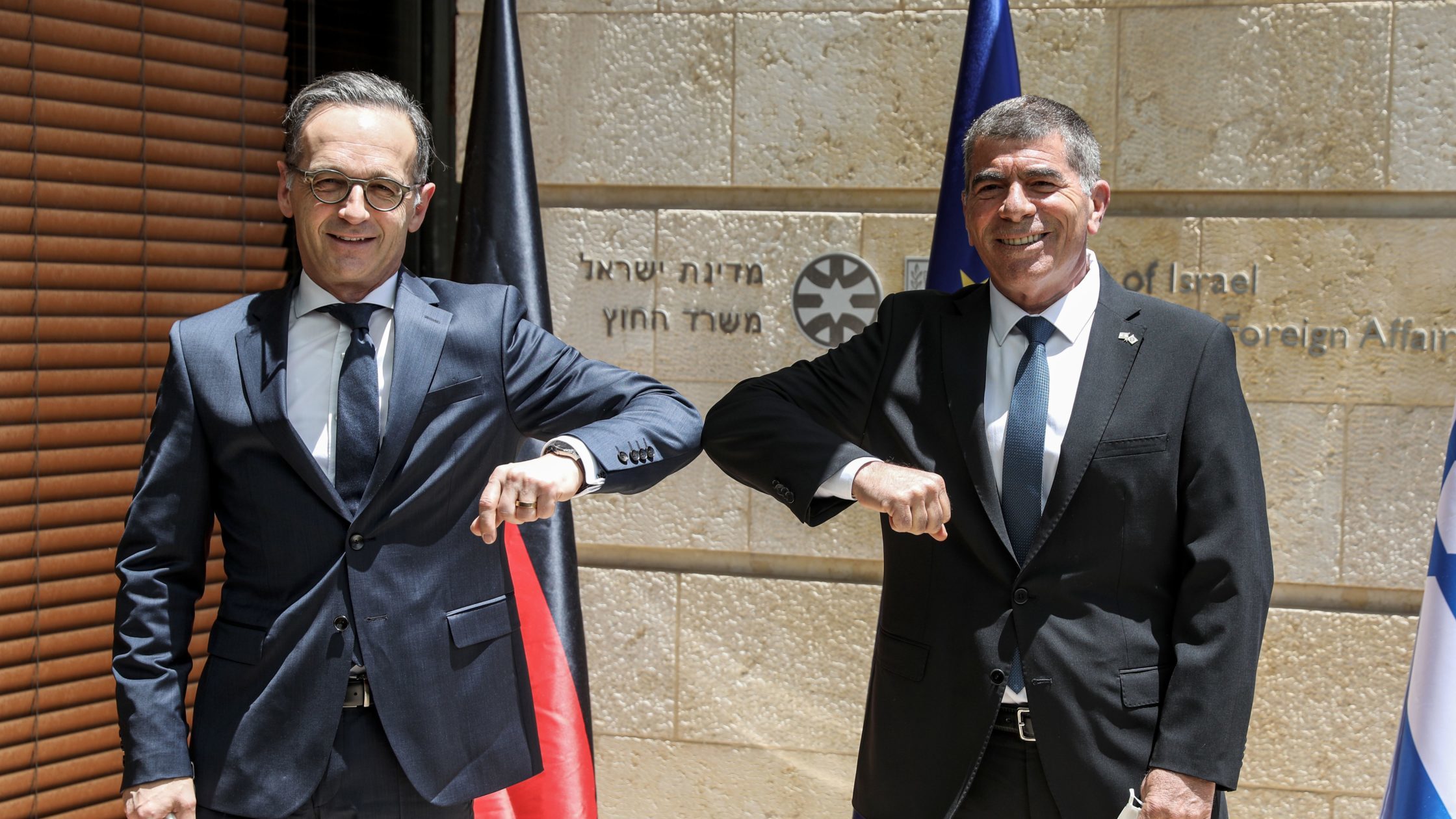In Israel, German FM Expresses ‘Concern’ over Annexation Plan
While Heiko Maas says extending Israeli sovereignty into West Bank would violate international law, he would not reveal Berlin’s potential response
German Foreign Minister Heiko Maas told his Israeli counterpart that Germany and its European partners have “serious concerns” over Israel’s plans to annex parts of the West Bank.
Maas met with Israeli Foreign Minister Gabi Ashkenazi in Jerusalem on Wednesday. At a joint news conference following their meeting, he expressed “honest and serious concerns… about the possible consequences of such a step.”
Israel intends to annex its West Bank settlements and the Jordan Valley, as outlined in a Trump Administration peace plan that has been criticized by the European Union and rejected by the Palestinians.
Ashkenazi said Israel planned to go ahead with the peace plan.
The target date for annexation that has been mentioned numerous times by Israeli Prime Minister Binyamin Netanyahu is July 1 – the same day Germany takes over the rotating EU presidency.
“Together with the European Union, we [in Germany] believe that annexation would not be compatible with international law,” Maas told reporters, calling instead for a resumption of talks toward a two-state solution.
Maas was the first high-level European visitor to touch down in Israel since the coronavirus pandemic hit.
Maas would not say how Germany would respond to Israeli annexation. The EU opposes the move although it remains divided on how to react, with the German foreign minister’s visit seen in Jerusalem as an opportunity to tone down the bloc’s response.
Prof. Gisela Dachs, who teaches at the DAAD Center for German Studies at the Hebrew University of Jerusalem, explained Germany’s stance.
“The idea of annexation goes completely against the principle of democracy and international law, which is a pillar of German foreign policy,” she told The Media Line.
Despite Berlin’s objection, Dachs does not think annexation would lead to concrete punitive action.
“There won’t be sanctions [by Germany], but there will be a different tone in the atmosphere, and there is also the question of Germany within the European Union,” she said.
Dachs says Maas will seek to get annexation “off track” by “trying to get talks [between Israel and the Palestinians] started again,” saying the goal was to “play a role but without getting out the sticks.”
Starting on July 1, Germany will also head the UN Security Council for a month.
On Tuesday, Palestinian Authority Prime Minister Mohammad Shtayyeh said the PA had sent the so-called Quartet, made up of the UN, the US, the EU and Russia, a counterproposal to the Trump peace plan calling for the creation of a “sovereign Palestinian state, independent and demilitarized.”
Shtayyeh responded to a question by The Media Line, saying the EU’s backing for the Palestinians was solid.
“We know the decision-making process in Europe is complicated. European decision-making is built on consensus. And we know that there are one or two countries in Europe that are not in line with others,” he said.
He noted, however, that European decision-makers would for the first time be debating sanctions on Israel, an end to some agreements and recognition of a Palestinian state.
“These measures are important to us because, at the end of the day, we have to break the status quo,” Shtayyeh explained. “For us, this is not lip service.”
Maas did not travel to Ramallah to meet with Palestinian officials although he was to participate in a video conference with Shtayyeh, who said Israel had prevented the foreign minister from travelling to Ramallah because of the coronavirus pandemic.
Maas then headed to Amman, where he was to meet with his Jordanian counterpart, Ayman Safadi. Last month, in an interview with the German magazine Der Spiegel, Jordan’s King Abdullah II warned that Israeli annexation risked sparking a “conflict” with his country.
In recent days, however, reports have emerged that Netanyahu might be preparing to walk back his maximalist position and initially annex only the regions of Ma’ale Adumim and Gush Etzion, both located in close proximity to Jerusalem, in addition to Ariel in the northern West Bank.


